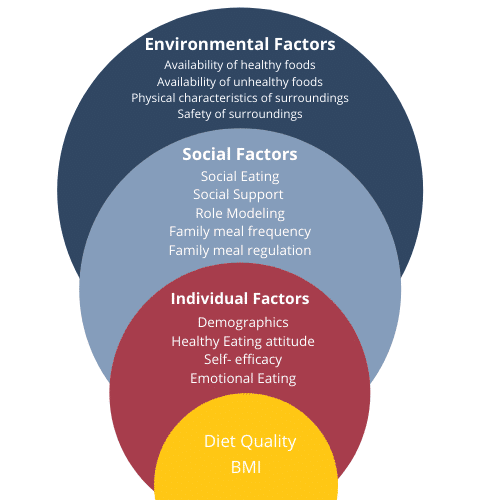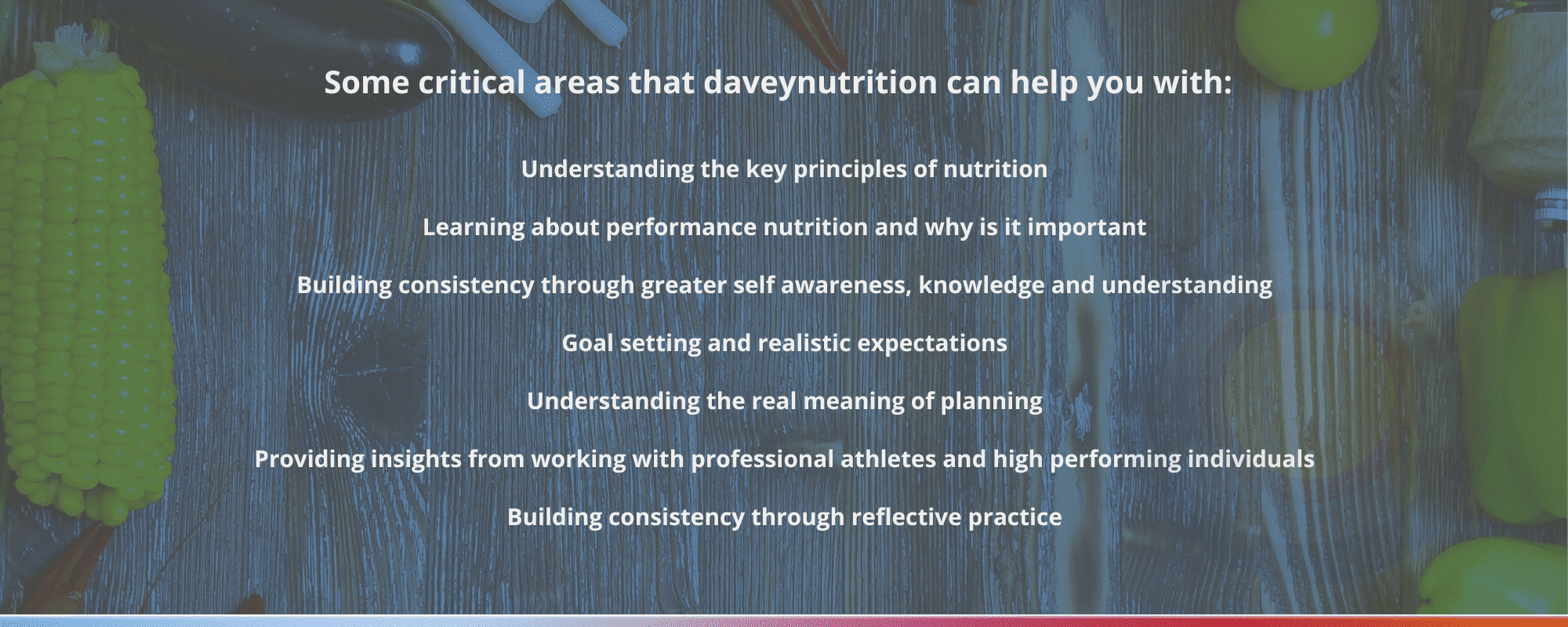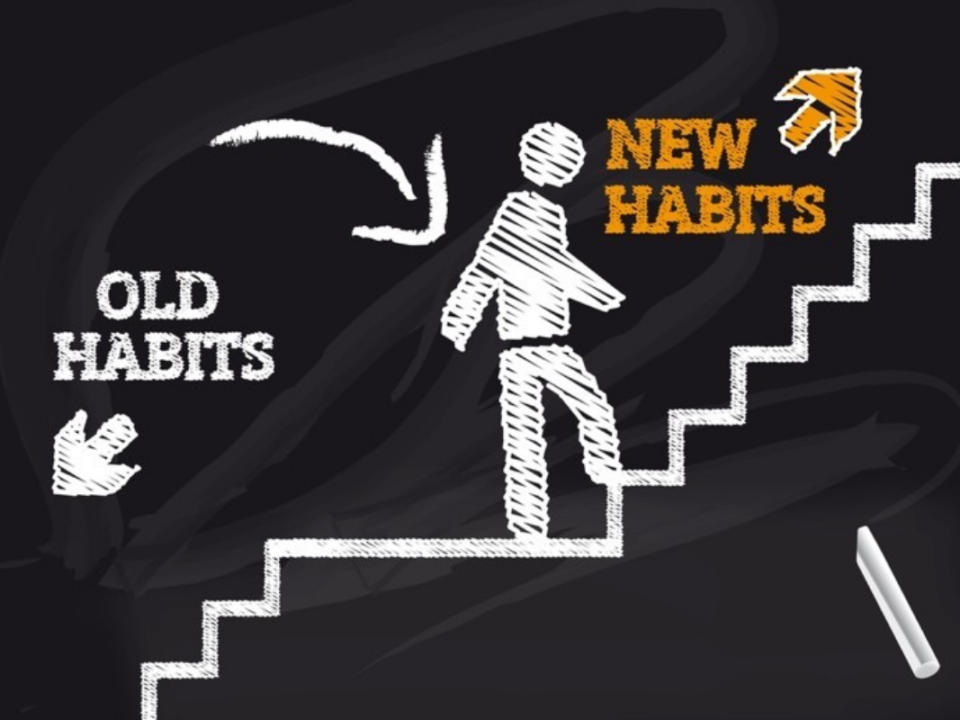Nutrition science over the decades, we must live in the present but learn from the past.
Nutrition Is Young Science, yet we have learned a huge amount about food and its potential impact on health and indeed performance over the past 50 years. While even nutrition experts’ opinions and philosophies can differ, there are fundamental elements of nutrition that are universally agreed upon. I recently posted a video on the history of nutrition over on my Instagram page – Nutrition is a Young Science. Here is a brief synopsis of some of the key developments from a policy and impact perspective.
![]()
A clear distinction and message: while a calorie is a calorie in energy terms, when it comes to food all calories are not the same, we need to focus on eating nutrient dense foods which are rich in fibre, essential nutrients, healthy fats and protein to support our long term health and performance. Underpinning all this we must think about behaviour change and good habits! We need to cook, explore, be curious, avoid short term approaches, not depend on convenience foods. A person’s relationship with food which as you can see is easily influenced by so many variables!
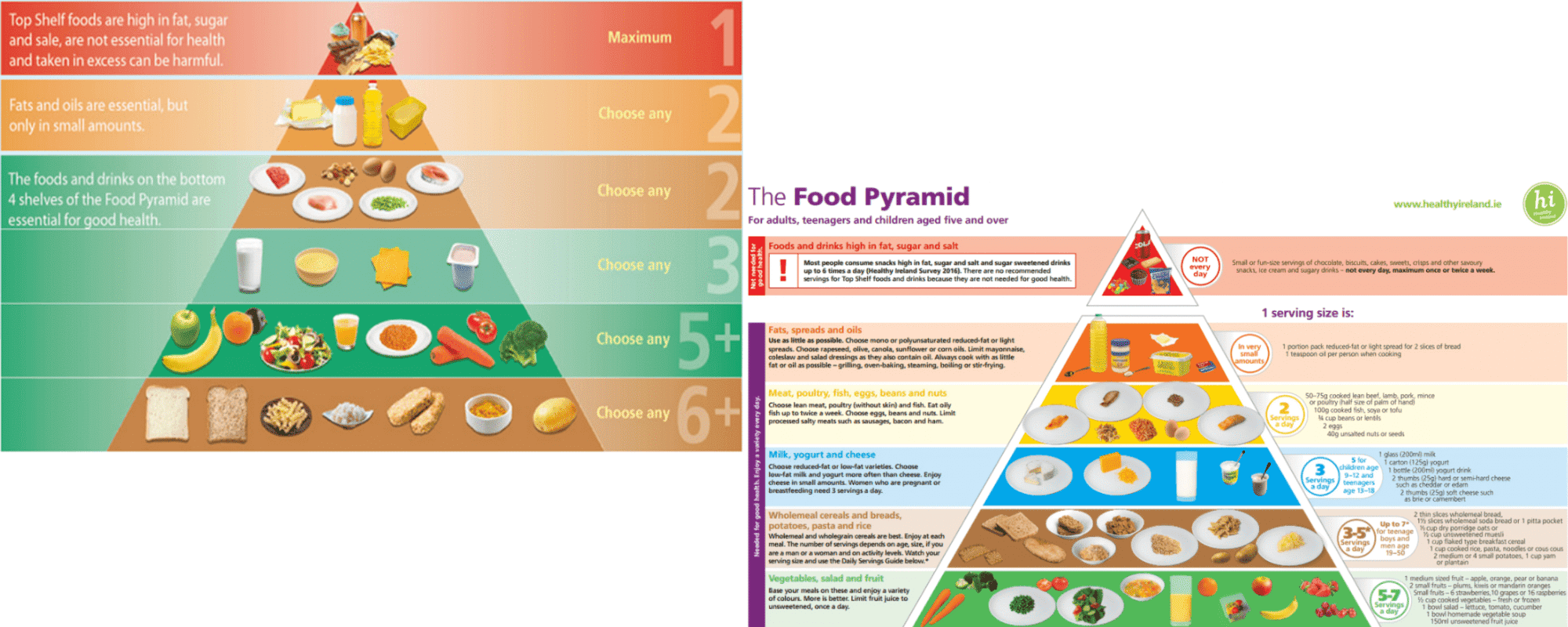
When it comes to food for health and exercise performance there is a hierarchy of daily goals a person should aim to achieve for a successful diet. This includes food quantity, macronutrients, the quality of the food you eat, meal timing and finally supplements. By prioritising these areas it will help you stay focused on the specific components of nutrition that matter most. It will also help you identify the areas in your diet that can be developed and improved to help you achieve your health and performance goals
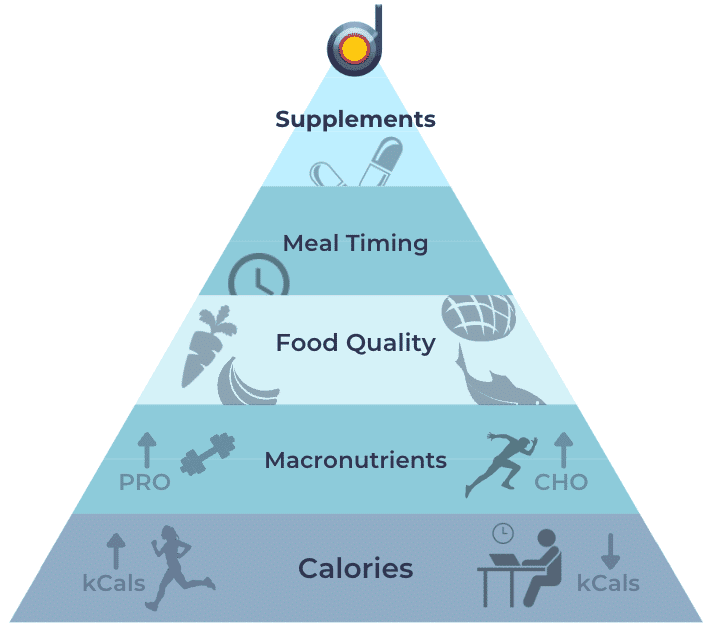
Modern nutrition science is relatively new, it is less than 100 years old but moving remarkably quickly. The scientific evidence and literature available to us on nutrition is doubling every decade, particularly in the past 20-30 years there has been a huge increase in not only what we know and understand about nutrition but how we approach it.
In more recent years, there has been a growing awareness of factors that influence nutritional practices and ultimately our health and longevity.
Some of the reoccurring themes in the literature particularly for those who aim to lose weight and maintain weight loss include:
- Extrinsic motivation – environment, social influence, cultural and social norms
- Intrinsic motivation – health, wellbeing, disease risk, confidence
- Goal setting – performance goals, weight related goals, SMART goals, clearly defined goals, personalised goals, group/team goals
- Extrinsic challenges – work, holidays, social and cultural norms, celebrations
- Intrinsic challenges – stress, relationship with food, understanding of nutrition, time, support system, pregnancy, illness, injury
We now recognise that a person’s nutritional practices and relationship with food is affected by so much more than nutrition research, general health recommendations by world health bodies and various government policies.
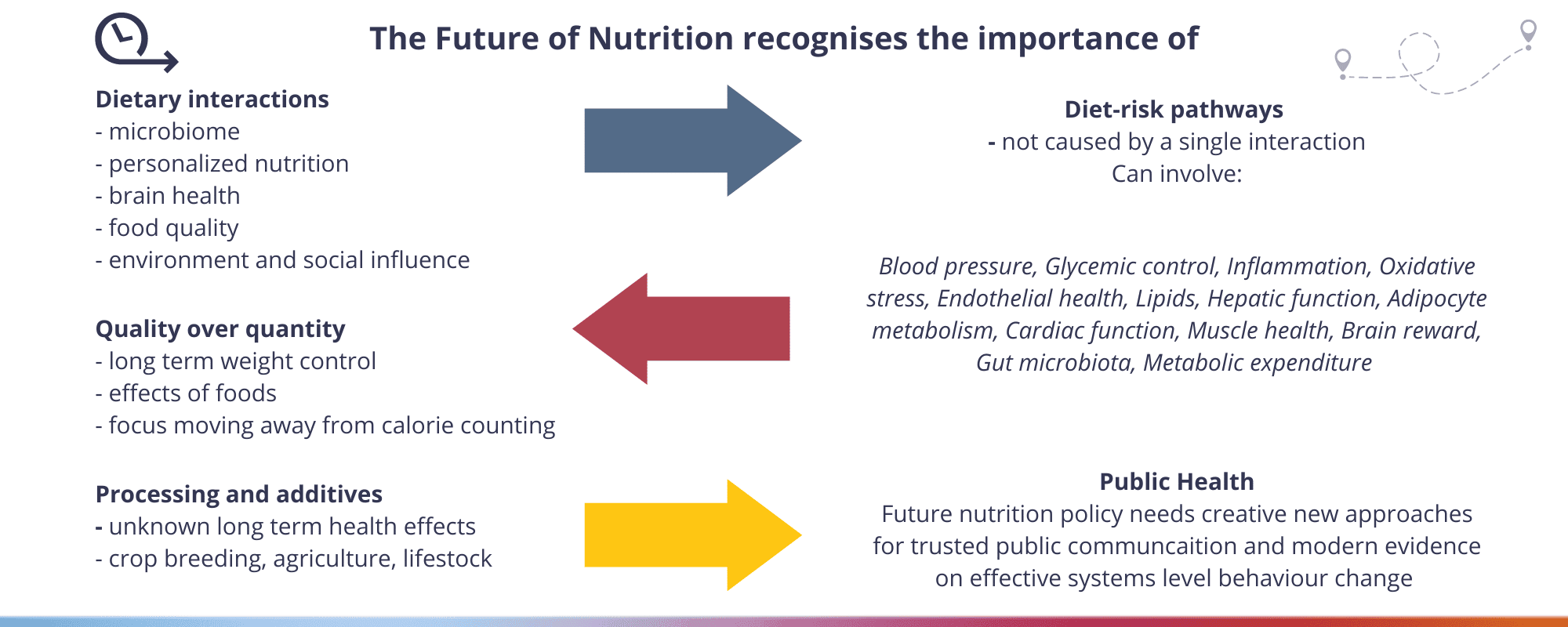
The food choices we make can be influenced by our feelings and experiences. For example feelings of loneliness, criticism, frustration, isolation, fear of weight gain, exclusion, or deprivation can have profound and accumulative influences on our day to day food choices. While our experiences of liberation, sense of purpose, reinvention or new identity, receiving compliments, a new community or new opportunities can simultaneously influence our nutrition practices, positively or negatively.
Through the identification and understanding of the factors that influence our food choices, we can learn how to improve and take ownership of our nutritional practices and relationship with food.
Summary
- You have different energy requirements each day depending on how much physical activity you are doing. Align your food choices to your level of physical activity on the day.
- Eat for your specific exercise needs – there are different nutrient and energy requirements depending on your age, gender, goal, sport or discipline.
- Choose recipes or portions that are lower in energy and carbohydrates if you are only doing light activity or if you are doing an active recovery day that includes yoga or a light swim or cycle.
- Choose recipes that are higher in carbohydrates if you are doing a significant level of physical activity or high-intensity exercise for a prolonged period (more than 60 minutes).
- Aim to consume a minimum of four portions of vegetables and three portions of fruit daily.
- Try to meet your need for fluids on a daily basis (at least 2.5 litres per day).
- Eat four to five protein foods during the day to support recovery, keep you satisfied and maintain muscle mass.
- Include fresh herbs, spices, seeds and berries into your daily diet – these are natural, nutrient-dense foods that support recovery and healing.
- Your mindset and your habits matter and you must aim to think about your nutrition and lifestyle in a bigger picture and base them around values and clearly aligned goals. Food has the power to provide infinite positive experience and influence on your life, don’t set yourself up for a lifetime of daily battles.
How we see the future of nutrition
At daveynutrition we see the future of nutrition in a different way. We believe that nutrition and health is connected in a much deeper way than we have been led to believe in years gone by. In the past, nutrition was looked at with a superficial approach, reducing, isolating and limiting foods with the aim of identifying what foods cause ill health and what the secret to optimal health could be.
Thankfully, the depth of our knowledge is growing. We are now equipped with the foundational research to understand what our body requires in terms of energy, macronutrients, vitamins and minerals. However, the future of nutrition is so much more than that, it is so more than food!
We need to focus our attention on behaviour change and improving our relationship with food. My team and I at daveynutrition are committed to helping you to do that. We believe that by understanding the meaning of performance, what high performance means to you and how nutrition can impact every aspect of your life, health and wellbeing, you can truly get the most out of life.
Our question to you is, how do you see your own nutrition evolving over the coming years?





